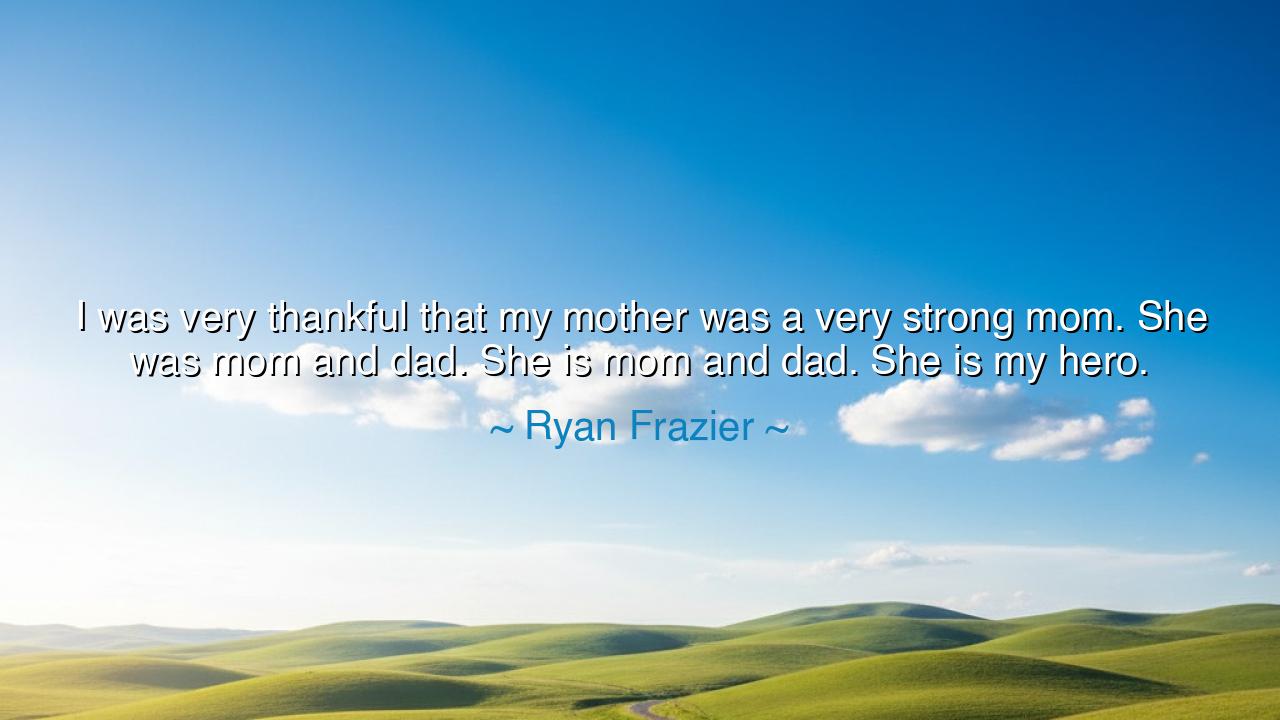
I was very thankful that my mother was a very strong mom. She
I was very thankful that my mother was a very strong mom. She was mom and dad. She is mom and dad. She is my hero.






In the words of Ryan Frazier, we hear an echo that resounds through all the ages: “I was very thankful that my mother was a very strong mom. She was mom and dad. She is mom and dad. She is my hero.” These are not merely the words of a son honoring his parent, but the testimony of one who has looked upon the forge of hardship and seen a figure who withstood the flame. The mother is here not just nurturer, but warrior, a pillar of strength standing in the absence of another, both the gentle hand of comfort and the shield that guards against the storm.
This saying reminds us that there are those who, though human, embody more than one role, more than one duty, more than one burden. The mother as father is an image of doubled strength, of a soul called to give twice, to endure twice, to stand where no other stands. She does not merely raise; she defends. She does not only guide; she commands. Such a figure becomes immortal in the memory of her child, for she reveals by her life that true heroism is not only on battlefields or thrones, but in the daily labor of love unbroken by circumstance.
In this quote lies also the cry of gratitude. The son does not take the sacrifice as granted, but raises it up as sacred. For in the absence of a father’s hand, he saw no emptiness, but rather a mother who became both. This mirrors the story of Cornelia Africana, the Roman matron and mother of the Gracchi brothers. Widowed, she raised her many children alone with strength and dignity, refusing kings and wealth, and saying of her sons, “These are my jewels.” She became both mother and father to them, and her legacy carved their destiny into Roman history.
The heroism of the mother is not clothed in armor, yet it shines brighter than steel. It is found in the sleepless nights, in the burdens carried without complaint, in the discipline and tenderness given in equal measure. She becomes hero not by seeking glory, but by answering necessity. This is why Frazier’s words are not of pity, but of reverence. He declares not, “I was lacking,” but, “I was blessed.” He sees in his mother’s strength not a wound, but a gift.
From such remembrance arises a teaching: that strength is not confined to the roles society assigns, nor limited by the absence of another. Where there is love and will, one heart may carry the weight of two. One soul may rise and fulfill what fate has withheld. The truth here is ancient: when the pillar falls, another may rise in its place. And if that pillar be love itself, then the house shall not crumble.
For us who listen, the lesson is plain. Honor those who raised you. Speak their names with reverence, and recognize the unseen battles they fought for your sake. If your mother or father bore more than one burden, acknowledge it openly, for gratitude transforms memory into blessing. And if you yourself are called to be more than one for those who depend on you, do not despair; know that in this calling lies greatness.
Practically, this means to act. Write to those who shaped you, tell them of their heroism while they yet live. If you are a parent, be mindful that every act of sacrifice builds a monument in the heart of your child. And if you are without parent, seek to embody for others the strength you once wished for yourself. In this way, the chain of strength is never broken.
Thus we carry forward the wisdom of Ryan Frazier’s words. A mother became mom and dad; she bore the weight of both and emerged as hero. This is not merely his story, but a pattern woven through human history, a truth that whispers to us all: love multiplied by courage becomes greatness. And those who receive it must never forget, but must live so that the legacy of their hero becomes their own.






AAdministratorAdministrator
Welcome, honored guests. Please leave a comment, we will respond soon